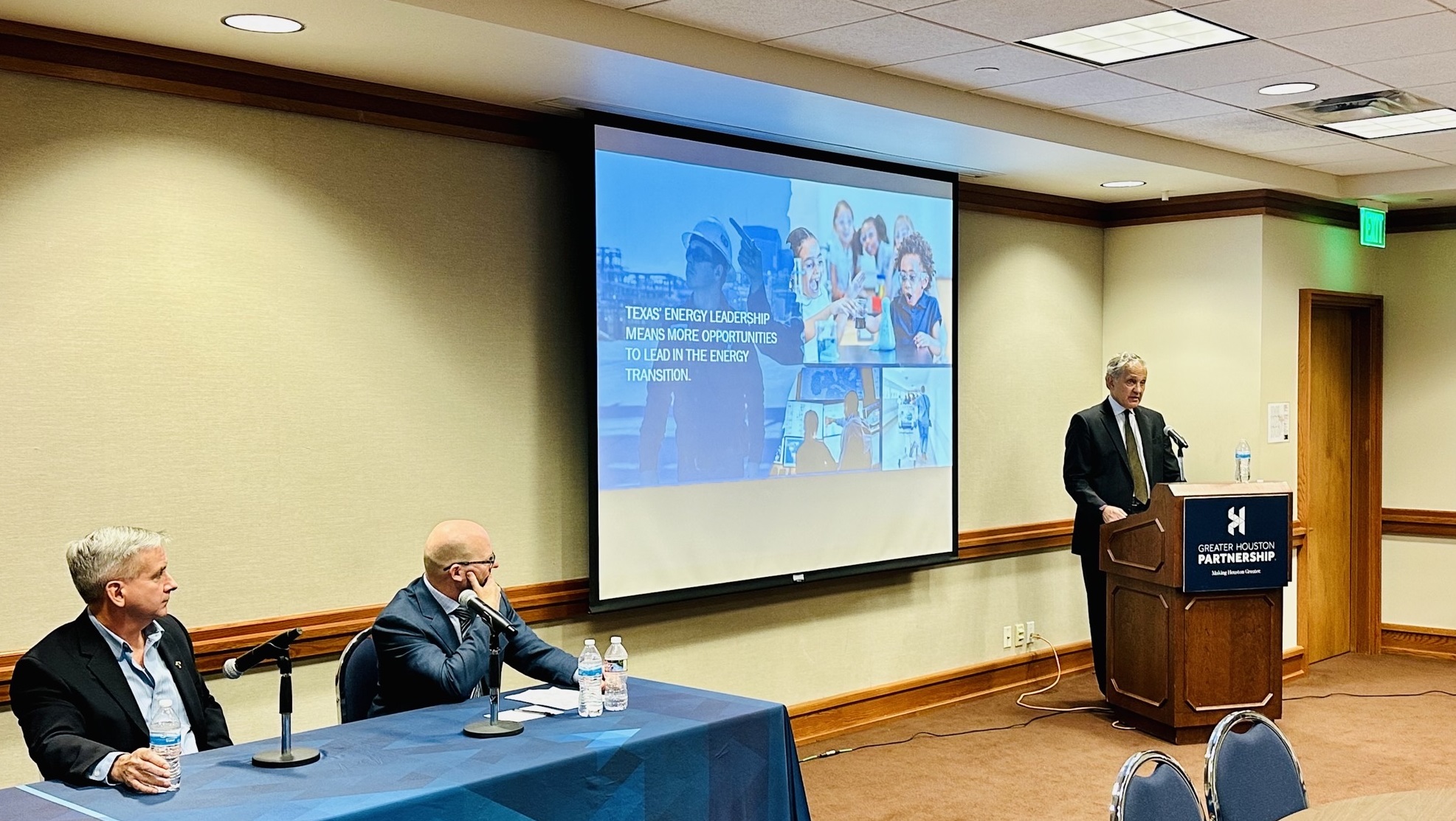Energy Forum Aims to Inform Lawmakers on Key Topics Ahead of Texas Legislative Session
Published Oct 19, 2022 by Caroline Wylie
Ahead of the upcoming legislative session, the Greater Houston Partnership's Public Policy Division held the first in a series of legislative energy forums aimed at educating legislative and policy staffers on Houston's leadership in the energy transition and the need for lawmakers to act on central issues such as carbon capture.
The forum included a presentation and an industry panel moderated by Scott Nyquist, Vice Chairman of Houston Energy Transition Initiative (HETI) for the Greater Houston Partnership. During his presentation, Nyquist discussed the vital role energy plays in funding our state budget, creating jobs and strengthening energy security. "Texas is a global energy leader, and the state needs the energy sector to remain a growth engine for the region by leveraging opportunities within the energy transition," Nyquist said. Through HETI, Houston's incumbent energy industry is nurturing the rapidly growing energy transition ecosystem and seeing measurable successes leading to investments, jobs and meaningful innovation.
The panel portion of the event featured critical conversations about who is driving the transition and why Texas companies like Baker Hughes are leading investors in innovative, emissions-reducing technologies. "There's the dual challenge of climate change and the need for reliable energy," Bruce Wilcoxon, Senior Public Policy Manager at Baker Hughes analogized, “it's like saying we're going on vacation, do we bring the kids or the luggage – you have to do both.”
Nick McKenna, Vice President of Midland Basin at ConocoPhillips, provided context to the transition conversations happening today, "the energy industry has always been in a state of transition." He highlighted how Texas companies like ConocoPhillips are raising the bar to meet growing energy demand in cleaner and more efficient ways.
Just as the Partnership serves as a strategic partner for the industry to lead on the energy transition, we need lawmakers and regulators to recognize their role in supporting the policies needed for Texas to remain a global energy leader.
For more information on the legislative energy forum series, please contact Caroline Wylie at cwylie@houston.org
 The Houston Report
The Houston Report




















